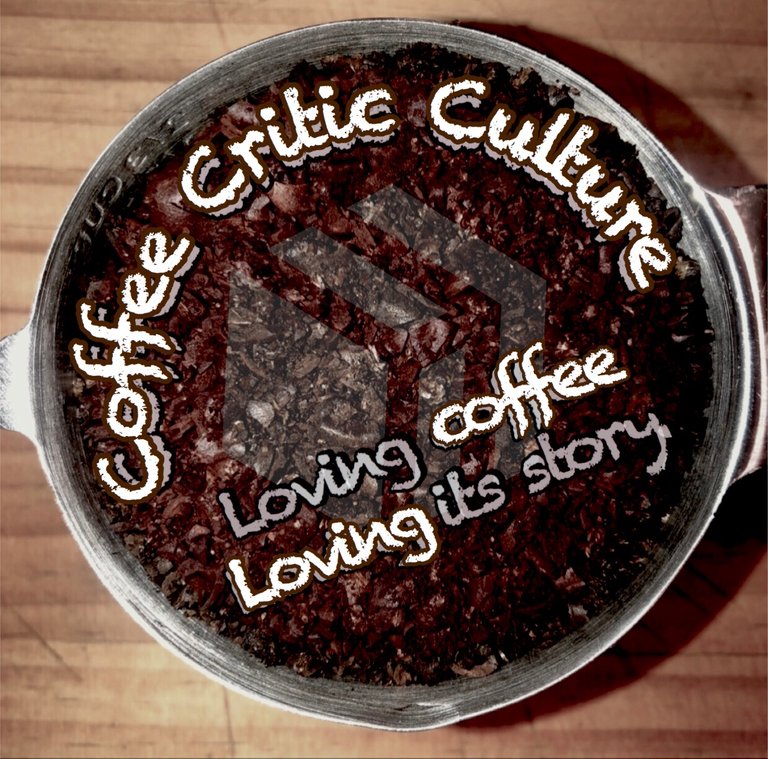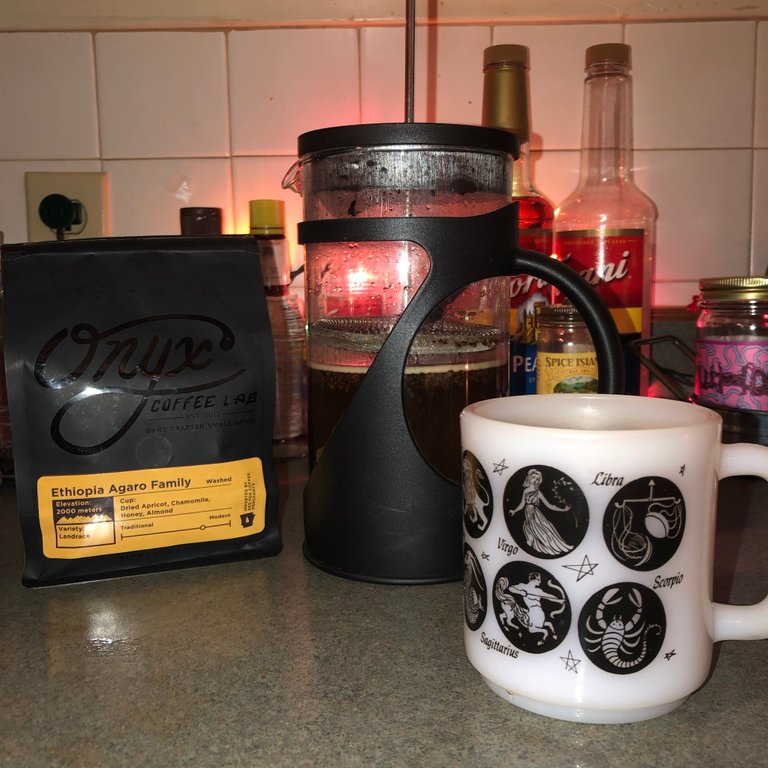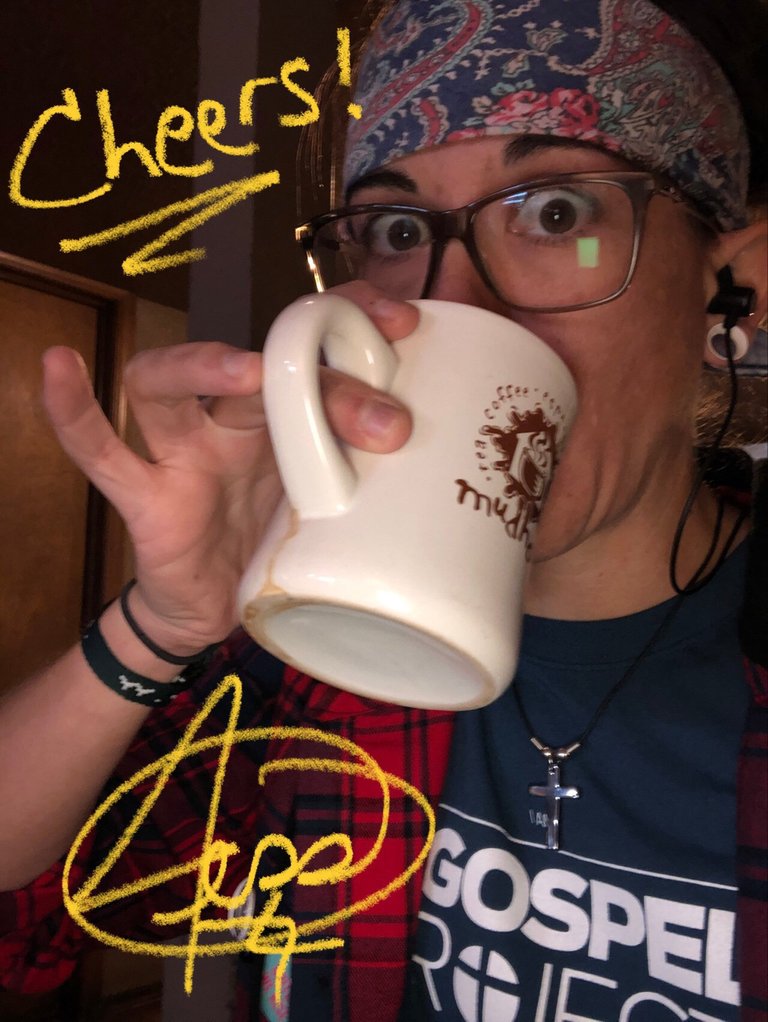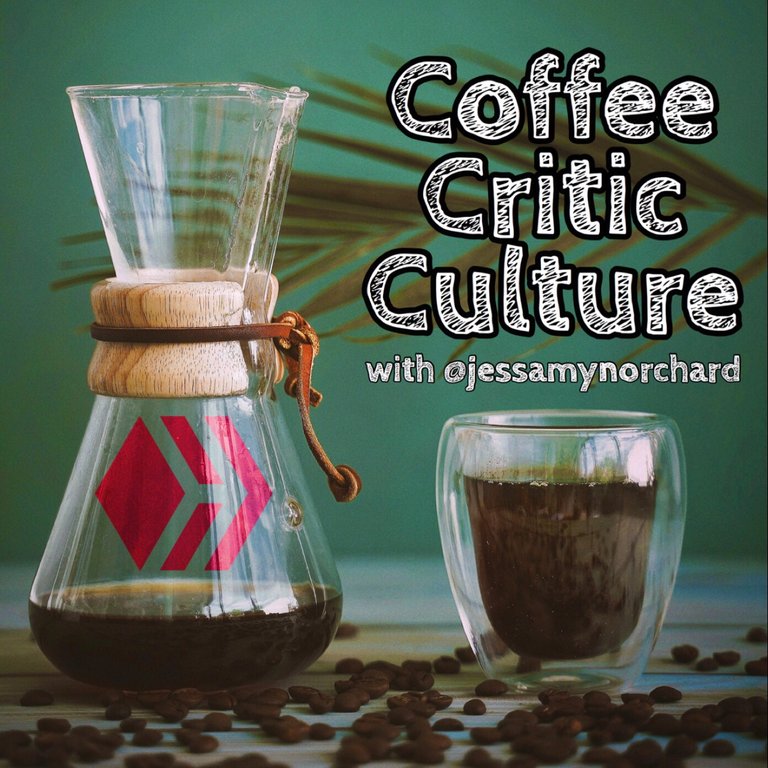
I’ve been thinking deeply lately about a lot of things. Obviously, the world is in turmoil and crisis and I’ve been thinking about that. But, in my anxiety, I’ve also found myself consumed in a myriad of small things that really capture my mental energy for a bit.
For the better part of this year, I’ve taken back to the world of critically enjoying coffee. I’ve been blogging about coffee, keeping a diligent coffee journal, looking for notes with names like “nougat,” and “wood chips,” and “sweat,” in my cups. I’m working to constantly develop my tasting palate as I continue to learn and share more about the origin stories of these great third-wave coffees and what makes these awesome coffees so good...it’s so fun to me. It takes some time and effort, but in a crazy world in a crazy time, it’s a welcome diversion.
In all of my criticisms, however, I was thinking recently about just how much I really enjoy drinking coffee.
We recently purchased some custom-ordered light-roasted Ethiopian coffee from a local roaster here in Springfield, and we have been enjoying it as a daily driver in filter coffee and in flash brewed iced coffee. It’s a solid cup, and regardless of its method of preparation (I’ve made it as filter coffee, in the Chemex, and in the Aeropress), it’s a solid all-around cup of coffee.

Occasionally, we will experiment around with adding a decaffeinated bean to our single-origins and see how those turn out. We currently are working with medium-roasted beans from Colombia, and some light-roasted beans from Ethiopia—decaffeinated by the trendy-for-a-reason Swiss Water Process.
Sometimes these blends we make are primo—other times they are not. For this particular pot of brew, we blended the caffeinated Ethiopian with the decaf Colombian. It wasn’t great. But it wasn’t awful, either. My better half seemed to think it was swill—and perhaps it was—but I didn’t make it, and it tasted robust and complex to my taste buds.
I think the point I’m trying to make with this is that I just love coffee...I love drinking it, thinking about it, writing about it, taking photos of it...the whole sha-bang. I love coffee, and I love that it’s so diverse and so deep a subject to study—yet it is also a commodity. A basic staple that a good portion of the world uses to get their days going—many layers in the study and appreciation of coffee—but one doesn’t have to nerd out on reviews and the latest gear to know what tastes good to them. Because that’s what all of this is about for me—helping you in finding a coffee (or coffees) that you will love and enjoy. I’ll share my story and hopefully it can help you in your own coffee journeys—whether you’re a barista, a cafe owner, or a person who just enjoys a good cup of coffee.
I just really hope we can enjoy these cups together, and I appreciate you reading and keeping up with the latest and greatest coffees in my life.
And in the spirit with enjoying coffee for what it is at its root, I want to give a bit of a detailed introduction to Ethiopian coffee, as this is what I’m drinking mostly lately—it’s the subject of our next several reviews—and it really has qualities and elements that embody really the entire character of what coffee is all about and all it can be.
The birthplace of coffee cultivation is sometimes debated between Ethiopia around the ninth century, and Yemen around the sixth century. Ethiopia’s origin myth that describes the beginnings of coffee culture is great.** It pulls in a number of elements that I think are still tied to some elements of coffee culture: representation of small farmers, finding energizing effects of coffee enjoyable, coffee aiding in prayer/study/meditation times.
This origin story is set in Kaffa (like coffee, see!?), Ethiopia. As the myth opens, you’re going to meet Kaldi, a goat herder:
The story goes that Kaldi discovered coffee after he noticed that after eating the berries from a certain tree, his goats became so energetic that they did not want to sleep at night.
Kaldi reported his findings to the abbot of the local monastery, who made a drink with the berries and found that it kept him alert through the long hours of evening prayer. The abbot shared his discovery with the other monks at the monastery, and knowledge of the energizing berries began to spread.
It is worth noting that there is also an alternate and culturally-rich coffee origin myth story from Yemen, but we will talk about that one in another season. Today we’re staying focused on Ethiopia as birthplace of coffee. :)
Coffee and Ethiopia have been tied to each other for hundreds of years. While the legend has it that coffee was introduced as a beverage upon its first consumption, it’s much more likely that it first was consumed in the Kaffa region by chewing on the berry and chewing it with a bit of ghee. Apparently this is still practiced by some, and this is also where the origin of putting ghee (and butter) into coffee drinks comes from.
Looking at the country’s coffee industry as a whole—they’re an interesting one in that they domestically consume half of the 6.5 million bags of coffee they produce. A lot of countries I’ve studied don’t enjoy the coffee that they’re producing. They’re almost solely export focused and many times don’t even have as much if any access to the “good coffee” that they’re producing. I found it interesting that Ethiopia was a huge exception to this general trend.
There seems to be a cultural appreciation and pride for the quality of the cups they create, and I really dig in the concept of experiencing that kind of gratitude together. Like, seriously, thank you Ethiopian coffee farmers, for being awesome and killin the coffee game. But, I digress. I can get really cheesy when it comes to the appreciation of coffee—and I’m finding I feel this way especially about Ethiopian varieties.
Coffee is made to be enjoyed. Sure, it serves a purpose. It has served the purpose of waking us up in the mornings and helping us to see through time and labor-intensive tasks with perhaps a heightened ability and energy. But it’s so much more than a commodity. It has a rich, cultural history worth learning a little bit about, and it continues to help build solid economic markets in countries that need such markets to survive and to (in many cases), resist the temptation to engage in drug cartel-based businesses.
Pausing a second and thinking about this when you pay a little more for a bag of beans makes a big difference. There are opportunities to support small farmers in that bag of coffee—the chance to uplift women farmers and processors, the chance to send children to school, the chance to help reformed addicts make a living. While coffee is a literal pick-me-up for us through the magic of caffeine—but it’s also a literal pick-me-up as we help support these small businesses through our intentional purchases.
The symbiotic nature of the coffee industry is really beautiful to me when it’s being done correctly—the farmers are producing more solidly-grown crops and are able to either control the evolution of the seeds so they are pest-resistant and yield larger crops or to help control the curing environment to optimize the chances of heirloom ancient crops to survive while keeping their genetics in tact. The stateside roasters need a high quality product to serve to customers in both home-brewing and cafe situations. More and more, people know the difference between good and bad coffee, and now that not only applies to the quality of the liquid in the cup—but also the entire seed to cup cycle: the ethics of the propagation, harvest, and processing. The trade pricing. The relationships. All of that matters.
Maybe that isn’t something you spend your time thinking about—and that’s totally okay, too. Thankfully, the number of small-batch roasters and import/export groups focused on paying fair prices for the coffees they’re sourcing has increased greatly, so even learning a bit about one roaster’s process can help you know your dollars are well spent. Finding a roaster that you trust —such as Onyx Coffee Lab for me—is a pretty valuable resource. We’re all out here helping each other together. But remember that even if you don’t think about it—doesn’t mean that it’s not going on right in front of you. I suppose that applies to a lot of things these days.
Another way that the coffee appreciation niche has grown is the acceptance that people have vastly different tastes and that it isn’t one-size-fits-all in regard to the variety of notes that a coffee can express...and not just in the nature of the bag notes, since our own tastes are so different, we also have a difference in perception of a particular coffee.
It’s like perceiving color. We can both see something that we interpret as purple, but what we actually perceive could be totally different. We’d never know. The same is true for taste. We could perhaps both identify a flavor we would associate with, say, pickles, but we also have no way of knowing how different those actual tastes are perceived individually. Our senses are a wild world.
The point of all this is that taste is a personal experience and we all perceive it differently. There’s no true good and true bad when we get down to it. It’s about what that means to you, so reading other tasting notes and experiences is a great way to get input on taste, but we have to remember that our experience will be different—sometimes it’s worth a shot, because we might find something amazing.
For example, I’ve mentioned Weirdo from Cirque Roasters. It’s a blend—and like many third-wave appreciators, I like single-origins typically over blends. It’s not that blends aren’t great—I just typically gravitate to SO options. I very seldom order blends.
Anyway, Weirdo. We were in their coffee shop/ chill bar space a few months ago (before all of this pandemic stuff began) in Tulsa before a concert. Since I don’t drink anymore, it was nice to go to a place that specialized in their own roasted coffee as well as handcrafted drinks—seemed like a nice space to fit in even though I wasn’t drinking alcohol. Shrug.
The coffee smelled amazing, and then it delivered in all categories as it tasted even better than it smelled (which has ruined me forever, as now I’m usually disappointed in taste versus smell categories in my tastings). Like an explosion of blueberry freezer jam and notes of peanut butter. We have kept it in stock in our house since then. It’s an amazing coffee. The point is, while it ruined me in my anticipation of certain elements after this coffee delivered so beautifully—it also proved to me and showed me that blends can be amazing. That coffee is seriously the most complex and beautiful coffee I’ve ever had. Incredible.
Also, I’ve emailed a bit with their owner and their main roaster and their CS is amazing. I’ve never had a problem with shipping, but they were great in answering my questions regarding roast level and other details that I’ve covered in a previous post.
I hope you enjoy coffee. A lot of work goes into the cups we drink each day, and I think it’s good to just take a second and enjoy it. Enjoy all the work that goes into it.

Coming up soon are some reviews of some of the excellent Ethiopian coffees I’ve worked with lately, and I’m excited to share those with you.

Some of my favorite recent Ethiopian coffees:
Ethiopia Agaro Family // Onyx Coffee Lab
Some Ethiopian coffees I would like to try but haven’t yet:
Ethiopia Sidamo Natural // Happy Mug Coffee
Ethiopia Worka // Onyx Coffee Lab
Idio - Ethiopia Yirgacheffe // Counter Culture Coffee Roasters
I’ll be back with you soon. Also, will be recording a new vlog tutorial in the next week or so, as well. Cheers, and happy coffee drinking. Take some time to enjoy it. ☕️

Sources:
Ethiopian Coffee Culture. The Spruce Eats. Blog. 03 July 2020.
Ethiopian Coffee: Everything You Need To Know About The Birthplace of Coffee. HomeGrounds. Blog.
The History of Coffee: An Ethiopian Legend. National Coffee Association.

Thanks for checking out this installment of Coffee Critic Culture on Hive. Look out for our next coffee review, and in our next vlog I’ll be demonstrating a couple of my favorite Aeropress methods.


I’m @jessamynorchard, and I’m a second-wave trained barista with years of experience selecting, preparing, drinking, and appreciating coffee. I live in Springfield, Missouri, where I am a full-time looping musician, podcaster, and blogger, and I love sharing my passions with folks who are eager to increase their own appreciation of the intricacies of coffee.


i... like...coffee.... you should make me some of this fanciness
Do you drink cold brew? If you do, I’ll make you some and swing it by to ya the next time I’m down in that neck of the woods.
I'll drink whatever you bring me!
It is by coffee alone I set my mind in motion...
Same!! *sips 4th cup of coffee for the day * hahaha
Congratulations @jessamynorchard! You have completed the following achievement on the Hive blockchain and have been rewarded with new badge(s) :
You can view your badges on your board and compare yourself to others in the Ranking
If you no longer want to receive notifications, reply to this comment with the word
STOP